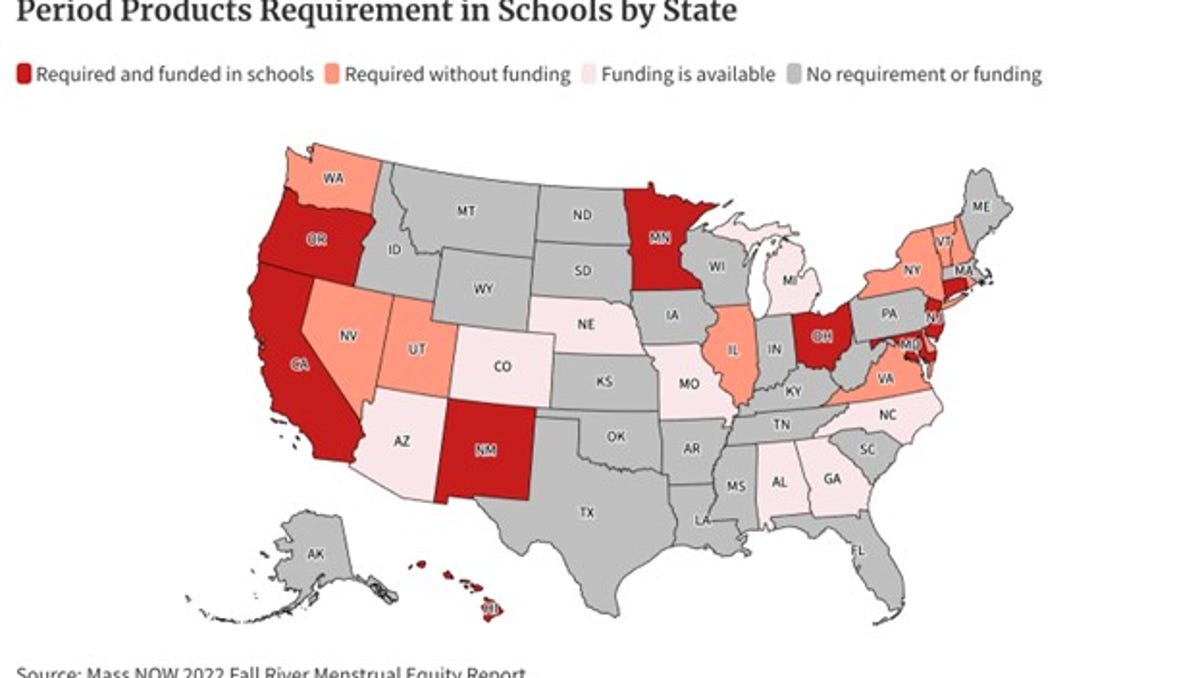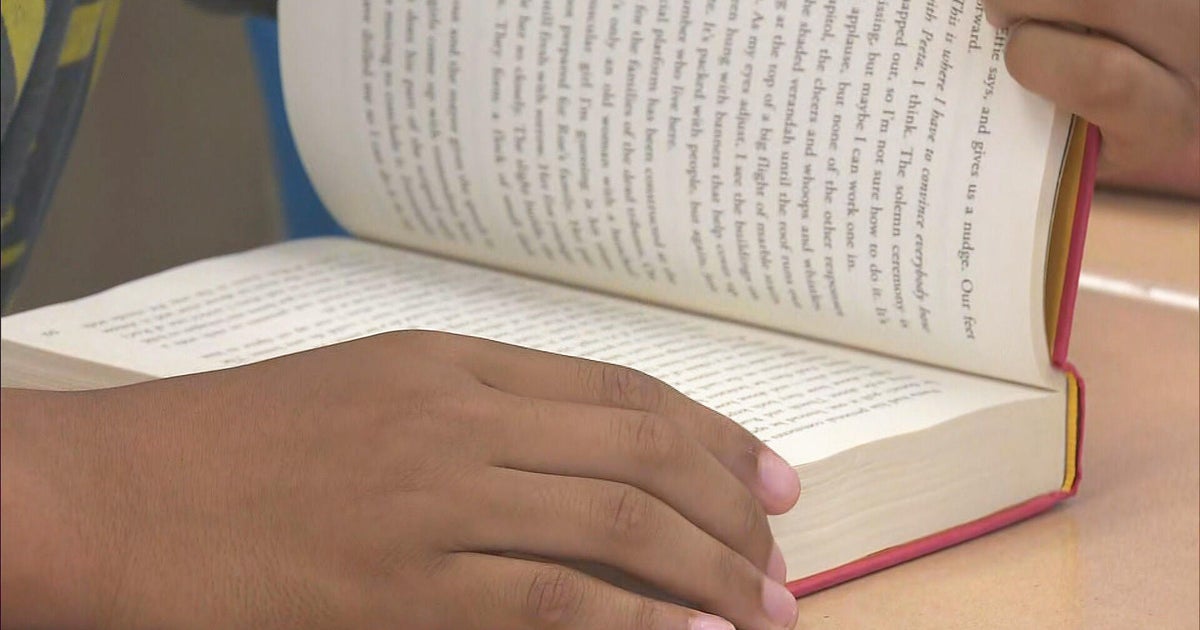Massachusetts
MA advocate groups are calling legislators to ensure equal access to menstrual products

When women and girls don’t have access to menstrual products, they have to “just bleed and pray” that their pants will hold. Many in Massachusetts are forced to use toilet paper as a substitute for period products.
“I think it’s a matter of dignity and allowing menstruators to have the option to not have to free bleed or just giving them that bodily autonomy of how they want to deal with their periods,” said Olivia Toscano, the community organizing co-op of the Massachusetts chapter of the National Organization for Women.
Advocacy groups in Massachusetts such as MassNOW are calling on House lawmakers to pass the I AM bill, to ensure access to free menstrual products, without stigma, to all women and girls in all public schools, homeless shelters, prisons, and county jails.
“It’s about making sure that these products which are part of health care, which a part of our life, are available,” said Sen. Robyn Kennedy, D-Worcester, one of the sponsors of the bill.” “It’s a basic need that all menstruating individuals have. And it’s about making sure that those products for that care are available to all individuals to help break down the disparities.”
How much spent on feminine hygiene products?
The average woman spends about $20 on feminine hygiene products per cycle, adding up to about $18,000 over a lifetime, according to estimates from the National Organization of Women.
“It costs a lot to buy these products,” said Toscano. “There are menstruators out there who have to choose between food, rent, and menstrual products. That’s not a choice that should have to be made. I think we need to stop looking at it as a luxury; it’s a necessity.”
In October, the Senate passed the I AM bill, originally introduced in 2019, but it has not yet been passed in the House.
Kate Barker Swindell, Service & Operations Manager of PERIOD. said Massachusetts has done some work, but it could do better.
The Alliance for Period Supplies reports that Massachusetts is considering nine bills related to menstrual access, while New Jersey leads with a total of 24 bills.
Rep. Natalie Higgins, D-Leominster, said the bill is “critical” because menstrual products are essential, but they are too expensive for many, especially those in schools, prisons, and shelters.
“I think I AM Bill really focuses on some of the places where institutionally there can be access issues. So starting with our schools, starting with our shelters, and starting with our jails and prisons, makes a lot of sense,” she said.
Kyla Speizer, the community organizer of MassNOW, said the measure is the first in the country to call for providing free menstrual products for all three places: schools, shelters and jails.
“Those three places are some of the places that period poverty is shown the most, so they are some of the most vulnerable populations,” she said.
Lack of education and awareness
“I’ve been working with public schools, libraries, and just connecting with either the head of the department to kind of see what is the need, who actually needs these products and supplying these products,” said Magdelene Barjolo, the Worcester regional organizer of MassNOW. When people donate to the needy, they think first of food and clothing, she said.
“Menstrual products are not a part of the conversation,” she said
PERIOD’s Swindell said through years of advocacy the conversations and the attention around the problem is “growing exponentially,” but the stigma is still a real thing.
“I will say that’s across all ages, all races, all cultures, all religions. It’s like universal,” she said.
As of right now, Barjolo said she hasn’t seen any schools implement the concept of period poverty within their curriculum. “They kind of steer away from it,” she said.
Even when menstrual products are provided in some places, the stigma creates “an extra barrier” for people who need them, Speizer said
“They’re afraid to ask for a menstrual product or they’re afraid to take a day off of work when they are having really bad cramps. Maybe they have a mental disorder and they can’t make it to work that day, or whatever it is,” she said. “The stigma is something that prevents a lot of folks from maybe achieving their goals.”
Grassroots organizing looks to meet interim needs
In December, Worcester City Manager Eric Batista said he was going to implement the first phase of providing free menstrual products within public spaces in the city early this year.
Barjolo said before anything happens, grassroots organizers will provide communities and public spaces with products.
“A lot of people have said something of what their initiatives are going to do in terms of menstrual health,” she said. “We’re actually doing the work aside from waiting for elected officials to do what they can do.”
Ali Civilikas, vice president of Menstrual Equity Alliance, a Clark University-affiliated student-led club, said the Alliance installed nine dispensers for menstrual products in school two years ago, and hand-fill those dispensers once a month.
“We just keep pads and tampons on us usually, and whoever has time to go around and fill them,” she said.
In an email, Lesa McWalters, social justice chair of First Unitarian Church of Worcester, said parishioners have set up a subscription to purchase pads each month (at $300 per month) and distribute them to sheltered women.
“There are approximately 100 women and teens in that shelter, and since SNAP benefits do not cover feminine products we have begun a program called Sister-to-Sister Cycle Connection at our church,” she wrote in the email. “This is a very basic need, and legislation should change the qualification of pads from a “luxury item” to a basic human right to have access to free feminine products as part of the SNAP benefits.”
Consistent supply can be an issue
Many school districts, lockups and shelters already provide free menstrual products, but consistently providing them can be challenging, Speizer said.
“Many of them do offer it for free or have procedures in place to offer it, but maybe they don’t have the stable resources to be consistently offering it,” she said.
As a student-led club, Menstrual Equity Alliance has struggled working with school administration and getting it to help fund clean menstrual products on campus, Civilikas said.
“I don’t think they’ve ever provided free menstrual products like we are right now.” she said.
According to the Alliance for Period Supplies, in the past three years, nine states passed laws to require and fund schools to provide period products. That does not include Massachusetts.
Kennedy said the bill would make sure that they’re required to be provided and that there’s funding available.
“This bill, and the additional work we need to do is really making sure that those products are available holistically and automatically for all individuals to be able to access,” she said.
Only a few people to help
Not having enough labor can also create an issue for grassroots or student-led organizations that depend on members to keep doing the work.
“It can be like logistically very difficult to deal with so much product and so much distribution that needs to happen with only a few people who have the ability to do this kind of thing full time,” Toscano said. “With the state stepping in, it’ll fix those problems.”
This is the third session since the I AM bill was first introduced, and it’s approaching the last few months of the second year of this legislative session. Speizer said the biggest hurdle is not lack of support, but making the bill a top priority for legislators.
“This is a bipartisan bill that everyone supports for the most part, but the issue is just making sure that it’s the number one priority for enough legislators that it gets passed quickly,” she said.
Higgins said she doesn’t have a projected timeline for the bill, but hopes the measure gets through the House and onto the governor’s desk.
“We’re getting so close to the end of the session that we’re not maybe as confident as we were six months ago. But we’re really proud of how far it’s come this session and proud of the work that has been done by everyone involved,” Speizer said. “At this point, it’s just did our efforts make as much of a difference as we wanted to or will we be trying again next year? It’s really hard to know.”
The Cape Cod Times is providing this coverage for free as a public service. Please take a moment to support local journalism by subscribing.

Massachusetts
21-year-old college student from Massachusetts among 4 killed in fiery wrong-way highway crash

A Massachusetts man attending college is among 4 killed in a fiery wrong-way highway crash.
According to Connecticut State Police, on Thursday at approximately 1:45 a.m., Troop G dispatch received 911 calls of a wrong way driver traveling on RT. 15 South, south of exit 53. Troop G dispatch was then notified the vehicle was involved in a head on collision and was engulfed in flames.
Preliminary investigation revealed that a vehicle occupied by Steven Rowland, 65, Thomas Lucian Vitale, 80, and Olga Vitale, 81 (all from Easton), was traveling on Route 15 South, in the right lane. 21-year-old Alexander Dennis of Wayland, MA was traveling northbound in the southbound travel lanes (wrong way), resulting in a head on collision. The vehicle being driven by Dennis became fully engulfed in flames.
All 4 occupants died at the scene. Dennis’ body was so unrecognizable, he wasn’t identified until today.
According to Fairfield University, Dennis had just completed his junior year on campus and was traveling home to Massachusetts for the summer when the car accident occurred. As a student in the College of Arts and Sciences, Alex was a visual and performing arts major with a special interest in film.
“At a time of year when we are actively engaged in the celebration of our students and their accomplishments, a loss like this seems inconceivable. Those who knew and loved Alex will be especially impacted by his passing, and his loss will be felt across campus. Our Jesuit colleagues are available to our community, as are staff members from Campus Ministry and the Counseling Center. For employees, the Employee Assistance Program (EAP) may also be a helpful resource at this time.” -President Mark R. Nemec PhD
C.A.R.S., Stratford Fire Department, Trumbull Fire Department, Stratford E.M.S. and D.O.T. assisted on scene.
Route 15 South was closed for approximately seven hours.
The case is currently being investigated. Contact Troop G at (203) 696-2500 if you witnessed this collision.
Massachusetts
Red-Bellied Cooter To Headline MA Endangered Species Day

WESTBOROUGH, MA — Scores of turtles will converge on Westborough on Wednesday.
Why? To celebrate the 40th year of one of the longest-running conservation efforts in the U.S. to reinvigorate the endangered red-bellied cooter species.
Starting in 1984, the state Division of Fisheries and Wildlife embarked on an effort to increase the cooter population from a low of 300. Part of that effort involved a “head start” program where schools, museums and research groups helped raise the turtles in captivity for their eventual release.
Many of those conservation partners will head to the MassWildlife headquarters in Westborough on Wednesday to deliver their red-bellied cooters. The state expects to tag the 5,000th turtle raised in the head start program. The celebration will also mark Endangered Species Day, which will officially be observed Friday.
“Over the past forty years, MassWildlife has ‘headstarted’ over 5,000 turtles. As a result, the estimated population of northern red-bellied cooters in Massachusetts has grown from just 300 in the 1980s to over 2,000 adults today,” the agency said in a news release.
Massachusetts has the only population of red-bellied cooters in New England, with the next closest group in New Jersey. The turtles, which can live up to 50 years, and are still listed as endangered by state and federal governments.
Wednesday’s event will feature remarks by federal and state conservation officials, the Massachusetts state herpetologist Mike Jones and participants in the head start program. The event begins at 10 a.m. Wednesday at the MassWildlife headquarters, 1 Rabbit Hill Road, Westborough.
Massachusetts
2,000 migrant students added to 74 Massachusetts school districts this academic year

PEABODY – The migrant crisis in Massachusetts has added about 2,000 students to schools in 74 different districts this academic year, according to the state.
That means there are about 242 districts still not facing the issue of having a sudden, unexpected influx of migrant children in their systems.
“A small handful of communities can’t take on this burden and do it well,” Peabody Superintendent Josh Vadala told WBZ-TV. His district is one of the 74. They’ve added 80 students to Peabody schools since September.
“We’ve been talking to the state. You know, enough is enough,” Vadala said. “We’ve taken on our share and we are doing a good job. If you continue to pile on, we’re worried that we’re not going to be able to provide the same service and then it all falls apart.”
Massachusetts response to migrant student crisis
“We believe deeply that every single student, regardless of circumstance, should have a high-quality education. Every student deserves that,” Massachusetts Education Secretary Patrick Tutwiler told WBZ.
Tutwiler said the state is giving those 74 communities what they need, including $105 per student, per day.
“Language barrier is definitely a challenge. The Department of Elementary and Secondary Education (DESE) very quickly stood up translation supports. Mental health is also a significant challenge where we’re seeing really clear manifestations of the hardships that families experience coming here (and) situations where students are not familiar with the typical school routines and that takes a lot of patience,” Tutwiler said.
What’s worked so far?
The state has a task force to find solutions and determine what works, Tutwiler said.
“There are so many heartening stories around how districts have really met the moment and really transitioned and welcomed families in robust ways,” he told WBZ.
Tutwiler specifically mentioned Peabody and what Vadala has done there. He has used the whole community to help the whole family, from field trips to experiences outside the classroom.
Getting to know the families outside the school walls is paying off inside the classroom, according to Vadala.
“I’ve not seen models as robust as what we are doing. It’s not a competition but we are doing our level best to meet the needs of families here,” Tutwiler told WBZ. He said they key to all of this is more money from the federal government.
-

 Politics1 week ago
Politics1 week agoHouse Dems seeking re-election seemingly reverse course, call on Biden to 'bring order to the southern border'
-

 World1 week ago
World1 week agoSpain and Argentina trade jibes in row before visit by President Milei
-

 Politics1 week ago
Politics1 week agoFetterman says anti-Israel campus protests ‘working against peace' in Middle East, not putting hostages first
-

 World1 week ago
World1 week agoGerman socialist candidate attacked before EU elections
-

 News1 week ago
News1 week agoUS man diagnosed with brain damage after allegedly being pushed into lake
-

 World1 week ago
World1 week agoGaza ceasefire talks at crucial stage as Hamas delegation leaves Cairo
-

 Politics1 week ago
Politics1 week agoRepublicans believe college campus chaos works in their favor
-

 Politics1 week ago
Politics1 week agoConservative beer brand plans 'Frat Boy Summer' event celebrating college students who defended American flag





















